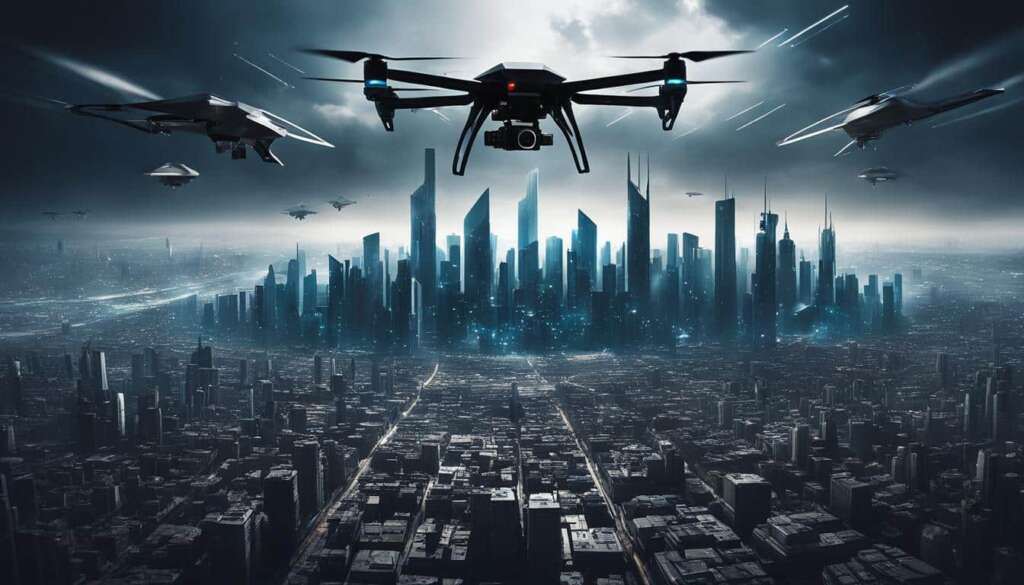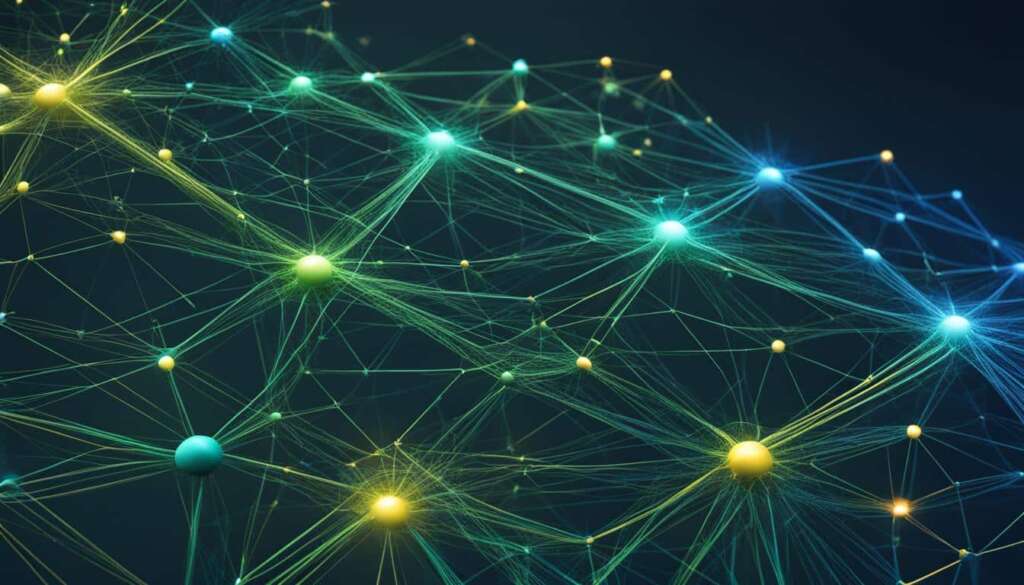Table of Contents
A comprehensive study conducted with input from 2,700 AI researchers has revealed that there is only a 5% probability of AI leading to human extinction. The research, carried out by renowned experts, analyzed various aspects of AI development and its potential impact on society. Contrary to popular fears, the study emphasizes that AI technology is not an imminent threat and highlights the critical safeguards in place to prevent any catastrophic consequences. The AI community is dedicated to ensuring the safe development and deployment of this technology, guided by ethical principles and responsible practices.
Artificial intelligence, or AI, has been the subject of intense speculation and concern in recent years. However, researchers have now flagged the AI extinction risk to be a mere 5% after extensive risk assessment. This study, which involved over 2,700 AI researchers, provides valuable insights into the potential risks and safeguards surrounding AI development.
The findings of the study bring reassurance to those worried about the potential dangers of AI technology. Rather than posing an imminent threat, the research highlights the collaborative efforts being made to ensure the safe and responsible development of AI. With robust control mechanisms and a commitment to transparency, the AI community is actively working to mitigate potential risks.
While concerns about AI technology remain, it is important to recognize that these risks are being addressed. The study reveals that the majority of AI researchers consider the threat of human extinction or other highly negative outcomes to be at just 5%. This demonstrates the dedication and responsibility of the AI community in prioritizing safety and ethical implementation.
In the upcoming sections, we will delve deeper into the minimal probability of AI catastrophe, the concerns and projections of AI researchers, and the potential breakthroughs and uncertainties in AI development.
Minimal Probability of AI Catastrophe
The study’s findings bring reassurance to those concerned about the risks of AI technology. It emphasizes that there is a high probability of AI contributing positively to society in numerous areas. The research team highlights the collaborative effort in creating robust control mechanisms and fostering transparency in AI development to minimize any potential risks associated with AI technology. With ongoing research and responsible development practices, society can harness the benefits of AI while mitigating any potential adverse outcomes.
The Positive Impact of Emerging Technologies
Emerging technologies, such as artificial intelligence (AI), have the potential to revolutionize various industries and improve numerous aspects of our lives. From healthcare advancements to increased efficiency in manufacturing processes, AI research and development has shown promising results, paving the way for a brighter future.
AI development holds the key to solving some of the world’s most pressing challenges. It opens doors to unparalleled discoveries and inventions that can improve the quality of life for individuals worldwide. Collaboration among researchers and organizations is vital for ensuring the responsible and safe development of AI technologies.
AI safety is a fundamental aspect of AI development. This field of research focuses on identifying and addressing potential risks associated with AI technology. By proactively assessing and understanding these risks, researchers can implement robust safety measures and develop ethical guidelines to prevent unintended consequences.
Creating a Secure Foundation for AI
- Investing in AI safety research to explore potential risks and mitigation strategies
- Establishing regulatory frameworks to ensure responsible AI development and deployment
- Promoting transparency and accountability in AI research and development
- Facilitating collaborative efforts among industry leaders, researchers, and policymakers to address emerging challenges
By prioritizing AI safety and responsible practices, the technology can continue to advance, contributing positively to society without compromising human well-being. Ongoing efforts and collaborations in AI research and development are crucial for maximizing the benefits while minimizing the potential risks.
| AI Research | AI Development | AI Safety |
|---|---|---|
| Advancements in machine learning algorithms | Building intelligent systems and applications | Identifying potential risks and ethical considerations |
| Exploring neural networks and deep learning | Improving AI models and performance | Implementing safety precautions during the development process |
| Investigating natural language processing | Enhancing AI capabilities in speech recognition and language understanding | Ensuring fairness and transparency in AI decision-making |
Survey Highlights Concerns and Projections
A survey conducted with thousands of AI researchers reveals their views on the future of AI and highlights their concerns and projections.
Almost 58% of the researchers consider the threat of human extinction or other extremely bad outcomes brought about by AI technology to be around 5%. This finding underscores the need for ongoing discussions and vigilant monitoring of AI advancements to ensure the safe and responsible development of this transformative technology.
The survey also brings to light other immediate concerns shared by the researchers. These include:
1. Creation of deepfakes: The potential for AI algorithms to generate convincing and realistic fake videos or images, which can have detrimental effects on individuals, businesses, and society as a whole.
2. Manipulation of public opinion: The use of AI to manipulate online information, leading to the spread of misinformation, propaganda, and the erosion of democratic processes.
3. Engineered weapons: The development of AI-powered autonomous weapons systems that could pose significant risks if they fall into the wrong hands or malfunction.
4. Authoritarian control: The potential misuse of AI technologies by authoritarian regimes to suppress dissent, invade privacy, and consolidate power.
5. Economic inequality: The exacerbation of existing societal inequities due to AI-driven automation, which may lead to job displacement and unequal access to AI-powered resources and opportunities.
These concerns highlight the importance of effective regulation, ethical guidelines, and proactive mitigation efforts to address the threats that AI presents. Researchers and policymakers need to collaborate to establish frameworks that promote AI development while safeguarding against potential risks.
Public awareness and support for safe AI development are vital in ensuring positive outcomes for humanity in an increasingly AI-dependent future.
Current Mitigation Efforts
The survey also sheds light on the efforts being made to mitigate the potential risks associated with AI technology. Organizations and experts are actively working on:
- Developing robust safety protocols and guidelines that prioritize ethical considerations and accountability in AI development and deployment.
- Promoting transparency and explainability in AI algorithms, enabling users to understand how AI systems arrive at their decisions and recommendations.
- Advocating for interdisciplinary collaboration and knowledge sharing to ensure diverse perspectives and expertise are incorporated into AI research and development processes.
- Encouraging public dialogue and engagement on AI-related topics to foster informed decisions and mitigate the negative societal impacts of AI technology.
These efforts, combined with ongoing research, can help shape the future of AI in a way that maximizes its benefits while mitigating the associated risks.
AI Breakthroughs and Uncertain Predictions
The survey conducted among AI researchers reveals an intriguing trend – researchers now anticipate achieving AI milestones earlier than previously projected. Recent advancements, particularly in AI chatbot services, have significantly influenced these predictions. The survey suggests that within the next decade, AI is expected to successfully accomplish a majority of 39 sample tasks. Furthermore, by 2047, there is a possibility that AI could outperform humans in every task.
However, it is essential to approach these predictions with caution. Historically, AI expert forecasts have been known to be unreliable. The industry may face unexpected challenges and even downturns along the way. Despite these uncertainties, the survey provides valuable insights into both the perceived risks and potential opportunities associated with AI development.
The continuous influx of breakthroughs in AI technology is propelling the field forward, opening up new possibilities for innovation, automation, and problem-solving. As AI continues to evolve, it is crucial for researchers, developers, and policymakers to collaborate effectively in shaping its future, ensuring responsible development and ethical application.
FAQ
Is there a high risk of AI technology leading to human extinction?
No, a comprehensive study conducted by renowned experts shows that there is only a 5% probability of AI leading to human extinction. AI technology is not an imminent threat, and there are critical safeguards in place to prevent catastrophic consequences.
What measures are in place to ensure the safe development and deployment of AI?
The AI community is dedicated to ensuring the safe development and deployment of AI technology. Ethical principles and responsible practices guide this process, with robust control mechanisms and transparency in AI development to minimize potential risks.
What are the immediate concerns highlighted by AI researchers?
AI researchers have expressed concerns about the creation of deepfakes, manipulation of public opinion, engineered weapons, authoritarian control, and economic inequality. Effective regulation, mitigation efforts, and advocacy for safe AI development are emphasized to address these concerns.
What are the projections for the future of AI?
Almost 58% of AI researchers consider the threat of human extinction or other extremely bad outcomes brought about by AI technology to be around 5%. AI is forecasted to achieve a majority of 39 sample tasks within the next decade and potentially outperform humans in every task by 2047.
Are AI predictions reliable?
AI expert predictions have historically been unreliable, and the industry could face unpredictable challenges and downturns. However, the survey provides valuable insights into the perceived risks and opportunities associated with AI development.













